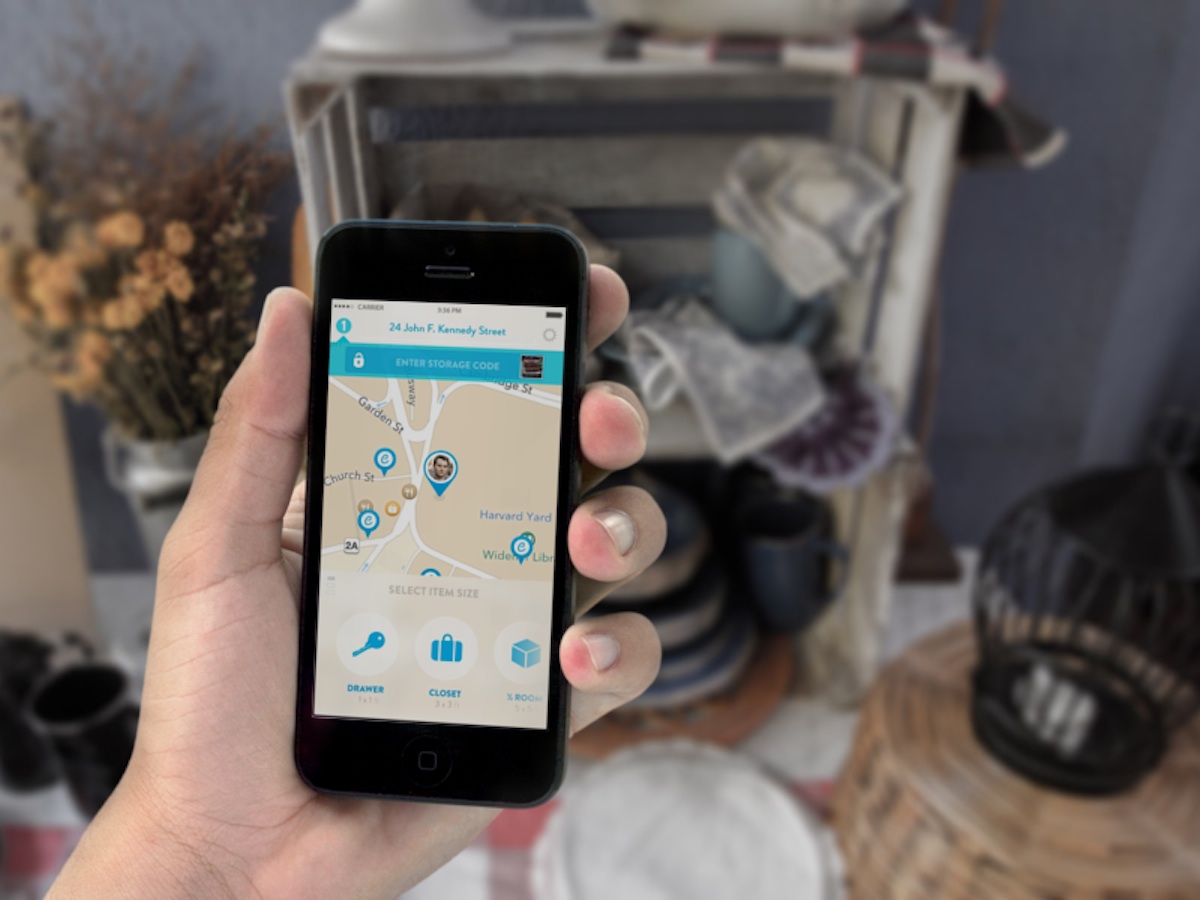‘Cubbyhole’ App Lets Users Ditch Their Luggage for the Day

Photo courtesy of Cubbyhole
Imagine briefly passing through a city during a weeklong trip and wanting to explore everything it has to offer, but having one thing constantly weigh you down: your luggage.
To remedy this travel problem—and a list of other storage frustrations—a group of Boston University graduates launched a new shared-economy app in Boston, with plans to expand into other cities, that lets users temporarily ditch their belongings for a set period of time.
“There is a tremendous amount of day travelers in Boston, and they want to explore the city empty-handed, and this app makes it simple to do that,” said Jason Kaplan, CMO and a cofounder of Cubbyhole. “It kind of adapts and creates a better short-term storage market, and improves the long-term storage market as well.”
The idea for Cubbyhole came about when company CEO Nus Sharif realized that a majority of people who stayed with him using Airbnb services often asked if they could leave their luggage behind while they took on tourist attractions in the city after officially checking out.
Recognizing the demand, Sharif and a group of four cofounders and friends decided they could solve the problem and turn it into a business. “There’s a really strong shared economy here in Boston. All of the services like Lyft, or Uber, or Airbnb, they are well received and well supported. This city just kind of thrives on those types of services. We do see Airbnb being a big part of this for our users, but we also see students and businesses—really anyone—using Cubbyhole. That’s kind of the beauty of it,” said Kaplan.
Here’s how it works: “hosts” and “renters” can download the app and then connect with one another by setting agreeable terms based on price, location, and the length of time they want to allow items to be stored. On the renter’s side, they fire up the app before taking a photo of their luggage, boxes, or other items they are looking to put away for the day, or longer, and then hit “good to go,” allowing the app to search the area for the closest 30 hosts nearby and willing to let them store their property.
“[After you identify a host] you enter a four-digit pin to start the transaction, go about your business, then go back to the host when you’re finished your business, and then it makes the transaction for you,” said Kaplan.
Those hosting will get to keep 70 percent of the money collected for the service, and Cubbyhole will keep 30 percent. Kaplan said the percentage they reap is actually a bit lower because they also cover the taxes and credit card fees.
“From the user side,it’s pretty simple. It’s a few taps and it’s done,” he said.
Of course, leaving belongings with random strangers comes with some questions about safety and security, such as “What if they steal my stuff?”
But Kaplan said renters that opt to use Cubbyhole are insured up to $1,000 for lost or stolen property, and because users need to access the app using their Facebook account and credit card, the company has a host’s information on file.
That, and Cubbyhole runs a 24-hour hotline in the event that something does go wrong. And because a user is required to take a picture of what they are storing first, it eliminates the chances of unwanted goods—like drugs—being stowed at a renter’s apartment.
Like other shared economy services and on-demand apps, Cubbyhole relies on user feedback, too. A host that doesn’t offer a good experience to a renter can be faulted through the rating service, making it less likely for that person to get business in the future.
“After every transaction there is a rating system. I can read that review, and explain why it didn’t work out, and boost up a reputation in the system,” said Kaplan. “We hope in a few months we will have this really reliable system of users. We really do have a good user-generated good base, and that’s our goal.”
Already, more than 200 people have signed up for the service, and it only recently left “beta” mode, he said. With more than 22 million people, both domestic and foreign, making trips to Boston annually—830,000 of which were here for leisure in 2012, according to statistics—Kaplan expects that user base to climb dramatically.
But the goal reaches beyond just those traveling into the city for a quick trip, he said.
Cubbyhole also hope to tap into the expanding student market in Boston, allowing renters forced to leave their apartments on August 31, before moving into their new place on September 1, a place to put their boxes.
“A tremendous amount of people are on September 1 to September 1 lease, so there is a gap when they have to be out of their old place before they can move into their new place. This makes it easy to store it to where you are moving,” he said. “We expect to see the most common use in the summer for students, or even traditional storage needs for homeowners.”

